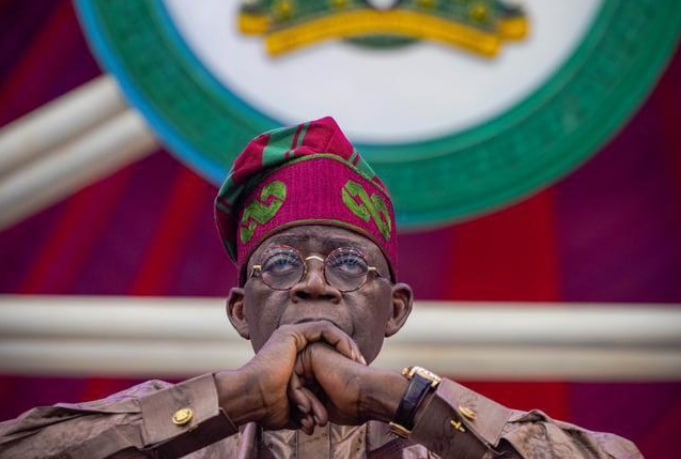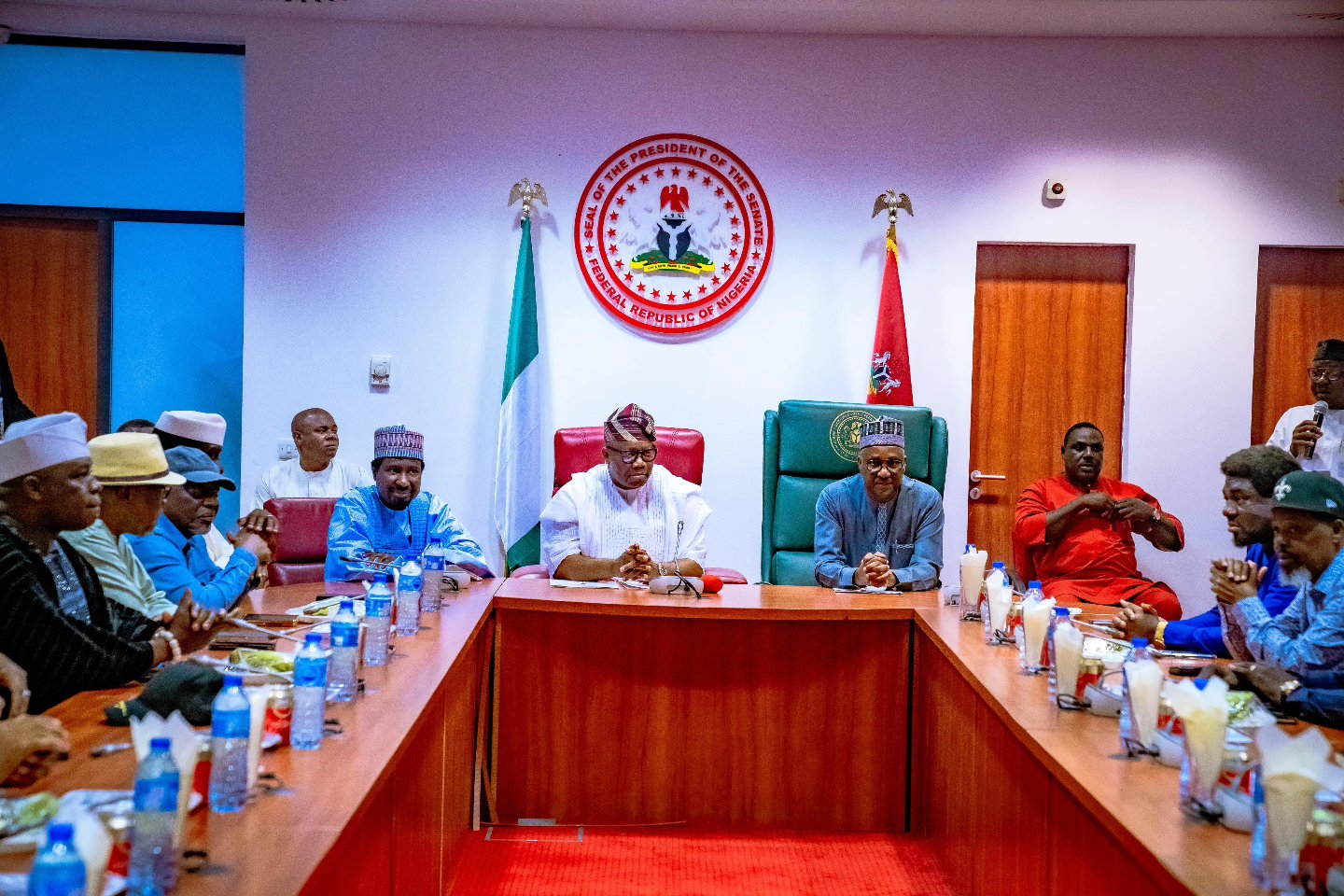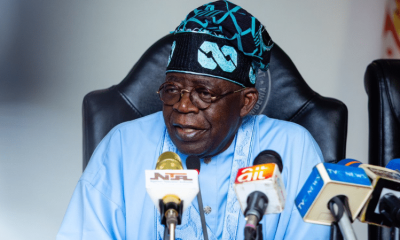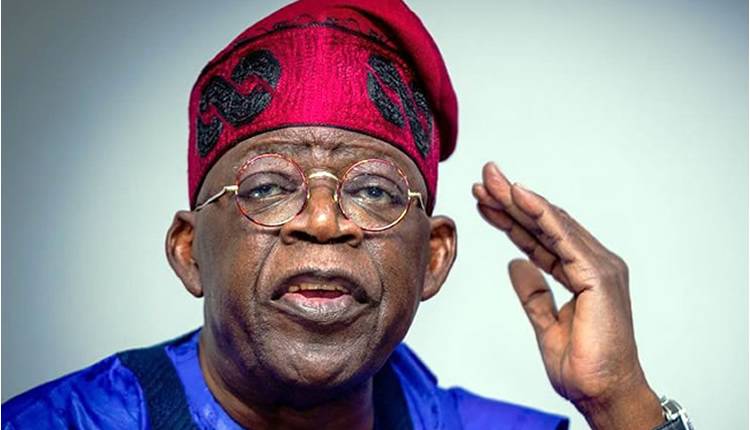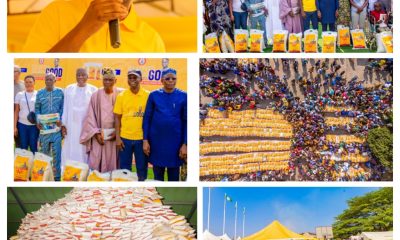Opinion
Playing Politics With Southern Kaduna

By Simon Kolawole
Two can play the game. That should sum up the politicking surrounding the disinvitation of Mallam Nasir el-Rufai, governor of Kaduna state, for the 2020 annual general conference of the Nigerian Bar Association (NBA) where he was to be a guest speaker. If he was “cancelled” simply because of the allegations that he does not obey court judgments, it would have been more manageable. But by throwing the highly sensitive and divisive southern Kaduna crisis into the mix, the campaigners poured fuel into fire. Inevitably, our fault lines were swiftly magnified. Muslim advocacy groups soon entered the fray and some northern lawyers announced they were pulling out of NBA.
If you can understand the southern Kaduna crisis, then you are in a good place to understand and resolve the Nigerian conundrum. There are about 60 ethnic groups in Kaduna state as a whole, with the Hausa/Fulani obviously the majority. The minorities are generally referred to as “Southern Kaduna” — which, politically speaking, is euphemism for “Christian Kaduna”. In geography and demography, however, there are Muslims in “Southern Kaduna” although we often equate it with “Christian Kaduna”. In fact, I have been told by many Kaduna Muslims to stop saying that southern Kaduna is “predominantly Christian”. Nonetheless, I see it more as an ethno-religious identity.
The difficult part, for me, is not whether southern Kaduna is predominantly Muslim or Christian. That will not tell the story. The complicated part is how to understand, much less explain, why Kaduna Muslims and Christians do not see eye to eye, why there is mutual hate and distrust, and why the perennial bloodshed is almost unrivalled in ethnic, religious and communal combustions in Nigeria, maybe in Africa. If you cannot understand the problem, how can you identify the solution? Life is full of a billion uncertainties, but it is almost certain that blood will keep flowing in Kaduna. Thousands have died. Orphans and widows and widowers of war are everywhere.
Since the Kafanchan riots of March 1987, I have lost count of the many minor and major clashes and killings in the state. The creation of chiefdoms by Gen Ibrahim Babangida after the Zangon Kataf disturbances of 1992 appeared to have brought some peace, but it was the kind of perfect peace you experience at the graveyard. It does not take as much as a matchstick to set the state on fire. The reaction after every round of riots and killings is always the same: Muslims queuing behind Muslims and Christians queuing behind Christians. The last thing anybody wants to know is what the issues are and who is at fault. We simply take sides along our biases. That’s the way it works.
My elder sister lived in Kaduna city most of her life before her passing in September 2015. Sometime in 2005, after surviving many riots and killings, she called me to say she was moving to the “Christian” part of the city. I was shocked. She told me Kaduna city was now divided into two, like Lebanon. Christians and southern Muslims, she said, were living in one part, while northern Muslims were living in another. That way, she said, they all felt safe in their havens. This was some 15 years ago. And that was long before el-Rufai became governor. What we are dealing with in Kaduna, therefore, is not a recent development. We are dealing with deep-seated animosity and bitterness.
So, when el-Rufai is disinvited for a conference and a link is being made to the southern Kaduna crisis by the campaigners, that is a dangerous game. It re-opens a wound. It touches a raw nerve. Even those who are not el-Rufai’s fans will queue behind him. I was not surprised that the Muslim Rights Concern (MURIC) jumped headlong into the fray. MURIC is the Muslim version of the Christian Association of Nigeria (CAN) when it comes to whipping up divisive sentiments for political gain. The Jigawa branch of NBA also threw in their hat to support a fellow northerner. And now, some northern lawyers say they are forming a new NBA. In other words, two can play the game.
You don’t need to be an Albert Einstein to understand that the disinvitation of el-Rufai had little to do with the Kaduna crisis. The NBA itself did fact-finding in southern Kaduna three years ago and concluded that local politicians and “violence entrepreneurs” were behind the unending bloodbath. But as the 2023 presidential race draws nearer, and with el-Rufai believed to be eyeing either presidency or vice-presidency, the NBA somehow allowed itself to be used as a tool of demarketing. We are now witnessing the unintended consequences. Asiwaju Bola Tinubu and Vice-President Yemi Osinbajo, also thought to be presidential aspirants, are also facing demarketing campaigns.
In that case, the 2023 race promises to be awfully dirty. To be honest, I cannot be bothered about the civil war in the All Progressives Congress (APC). I am bothered rather if there will be a peaceful Nigeria before then. Our security agencies are evidently overwhelmed. We are battling with pockets of terror all over and the recent unemployment figures are not exactly exciting. So if what our political gladiators have to offer is blackmail and playing ethnic and religious cards, they need to ask themselves if there will still be a country for them to rule at the end of it all. If being president is really about serving Nigeria “with heart and might”, then the desperation and dirty tricks will be less.
I conclude. Indeed, two can play the game. But I suggest a different kind of game this time around: the game of peace and unity. Now that the el-Rufai disinvitation has pushed the southern Kaduna crisis to the agenda of broader national discourse, we have to take more than a passing interest. Those who don’t understand the issues should please seek the truth with open minds. What exactly is fuelling the crisis? Is it purely an identity issue? Is it security? Is it economic? Is it political? How do we engage around these issues with sincerity and sensitivity? If we do not have any solutions to proffer, we should at least not complicate things. And I say this to all sides in the conflict.
Ultimately, we need to get the southern Kaduna leaders, Muslim and Christian alike, to look inwards and ask themselves how long they want to be at daggers drawn. No Jupiter can bring peace to their communities until the leaders themselves decide that they have shed enough blood. We need to get them to bury the hatchet and allow the wounds to heal. In Jaba LGA, Fulani and Ham leaders have agreed to de-escalate tension. This is encouraging and has to be replicated in other communities. Any peace that needs to be enforced by soldiers is no peace. Peace is not enforced. Peace is embraced. Southern Kaduna badly needs more healing, more handshakes and less politics.
Advertise or Publish a Story on EkoHot Blog:
Kindly contact us at [email protected]. Breaking stories should be sent to the above email and substantiated with pictorial evidence.
Citizen journalists will receive a token as data incentive.
Call or Whatsapp: 0803 561 7233, 0703 414 5611




